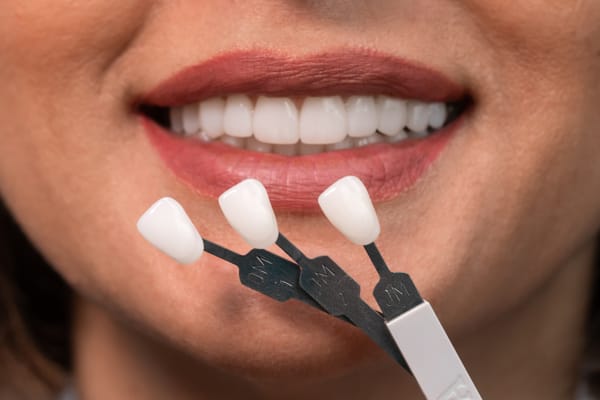
Veneers have become a popular solution for achieving that perfect smile. Whether you’re considering them for cosmetic reasons or to protect damaged teeth, understanding the lifespan of veneers is crucial. So, how long do veneers last? This guide will walk you through everything you need to know about the longevity of veneers and how to ensure they last as long as possible.
Understanding Veneers
Veneers are thin, custom-made shells designed to cover the front surface of your teeth. They improve the appearance of your teeth by altering their color, shape, size, or length. There are primarily two types of veneers: porcelain and composite.
Porcelain veneers are more durable and resistant to stains compared to composite veneers.
Composite veneers, on the other hand, are less expensive and can be applied in a single dental visit.
Veneers are an excellent option for those looking to correct issues like discoloration, chips, or gaps in their teeth.
Factors Affecting the Lifespan of Veneers
The longevity of your veneers depends on several factors:
- Quality of the Material: Porcelain veneers tend to last longer than composite veneers due to their durability and resistance to stains.
- Dental Hygiene Practices: Proper oral hygiene, including brushing and flossing, is essential to maintaining the health of your veneers.
- Lifestyle Factors: Habits like smoking, chewing ice, or grinding your teeth can shorten the lifespan of your veneers.
- Frequency of Dental Check-ups: Regular visits to your dentist can help detect any issues early and ensure your veneers remain in good condition.
Average Lifespan of Different Types of Veneers
The type of veneer you choose significantly impacts how long they last:
- Porcelain Veneers: These typically last between 10 to 15 years. Their durability and resistance to stains make them a long-lasting option.
- Composite Veneers: These usually last between 5 to 7 years. While less durable than porcelain, they are more affordable and can be applied quickly.
Signs Your Veneers Need Replacement
Over time, you might notice signs indicating that your veneers need to be replaced:
- Visible Wear and Tear: If your veneers appear worn down or chipped, it’s time for a replacement.
- Discoloration or Staining: Veneers can discolor over time, especially if they are composite.
- Chips, Cracks, or Other Damages: Physical damage to your veneers is a clear sign that they need to be replaced.
- Loose Veneers: If your veneers feel loose or are shifting, consult your dentist immediately.
How to Extend the Lifespan of Your Veneers
Taking care of your veneers is important if you want them to last a long time. First, you need to brush your teeth twice a day and floss every day. Using a non-abrasive toothpaste will help keep your veneers clean without scratching them. It’s also a good idea to visit your dentist regularly for check-ups. This way, your dentist can make sure your veneers and natural teeth stay healthy and catch any problems early.
Besides brushing and visiting the dentist, how you treat your teeth matters a lot. Try not to eat very hard foods, chew on ice, bite your nails, or use your teeth to open things because this can damage your veneers. If you grind your teeth at night, wearing a mouthguard can protect your veneers from getting worn down. By following these steps, you can help your veneers last longer and keep your smile looking great.
The Veneer Replacement Process
When you need to replace your veneers, there are a few steps to go through. First, your dentist will look at your current veneers and decide what needs to be done. This is important to figure out the best way to replace them. After this assessment, your dentist will remove the old veneers and get your teeth ready for the new ones.
Next, your dentist will take impressions of your teeth to make custom veneers that fit perfectly. These impressions make sure the new veneers match your natural teeth’s shape and alignment, so they look just right. Finally, the new veneers will be attached to your teeth, bringing your smile back to its best. This bonding process is carefully done to make sure the veneers fit well and stay in place for a long time. Knowing what to expect can help you feel more comfortable about getting your veneers replaced.
FAQs
How often do veneers need to be replaced?
Veneers generally need to be replaced every 10 to 15 years, depending on the type and how well you care for them.
Can veneers last a lifetime?
With excellent care, some veneers can last beyond 15 years, but they are not typically considered a lifetime solution.
Do veneers require special care?
Veneers require the same care as natural teeth: brushing, flossing, and regular dental check-ups.
What happens if a veneer falls off?
If a veneer falls off, contact your dentist immediately. They can often reattach the veneer or replace it if necessary.

Contact Walbridge Dental
Are you missing one or more teeth? We can help! The professionals at Walbridge Dental provide complete family dental care to families in the Millbury community. Contact us online to set up an appointment now or call us at 419-836-1033.
Connect on Social Media!
